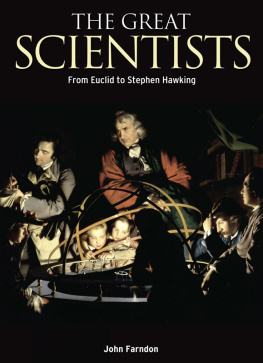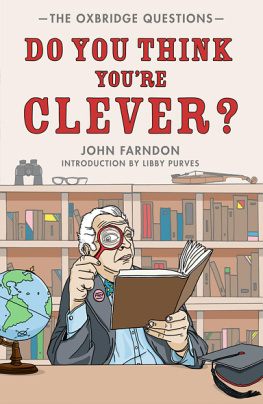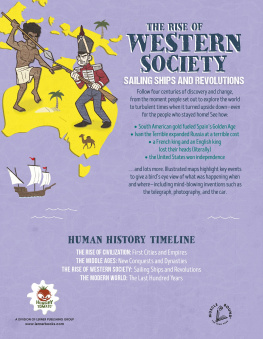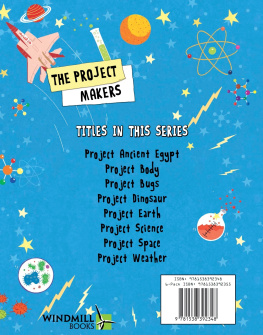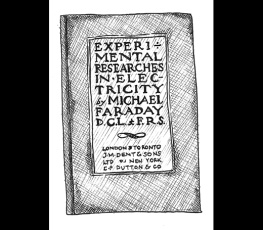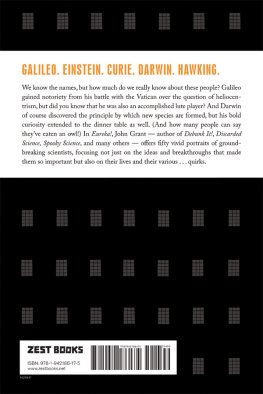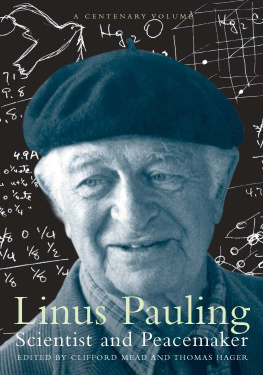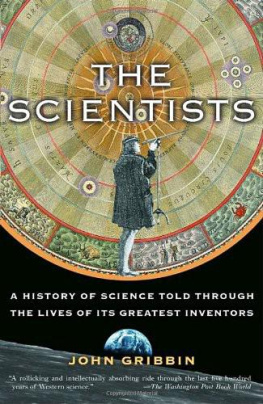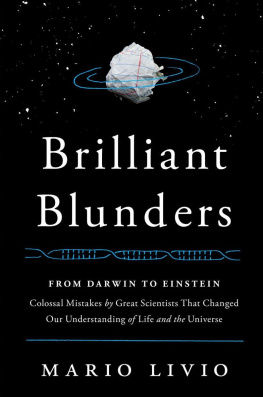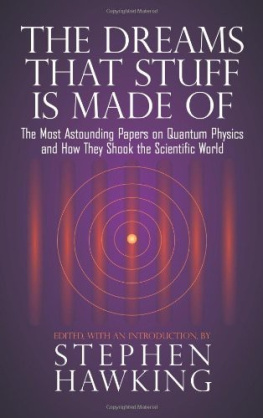John Farndon - The Great Scientists: From Euclid to Stephen Hawking
Here you can read online John Farndon - The Great Scientists: From Euclid to Stephen Hawking full text of the book (entire story) in english for free. Download pdf and epub, get meaning, cover and reviews about this ebook. year: 2012, publisher: Arcturus Publishing Limited, genre: Science. Description of the work, (preface) as well as reviews are available. Best literature library LitArk.com created for fans of good reading and offers a wide selection of genres:
Romance novel
Science fiction
Adventure
Detective
Science
History
Home and family
Prose
Art
Politics
Computer
Non-fiction
Religion
Business
Children
Humor
Choose a favorite category and find really read worthwhile books. Enjoy immersion in the world of imagination, feel the emotions of the characters or learn something new for yourself, make an fascinating discovery.
- Book:The Great Scientists: From Euclid to Stephen Hawking
- Author:
- Publisher:Arcturus Publishing Limited
- Genre:
- Year:2012
- Rating:5 / 5
- Favourites:Add to favourites
- Your mark:
- 100
- 1
- 2
- 3
- 4
- 5
The Great Scientists: From Euclid to Stephen Hawking: summary, description and annotation
We offer to read an annotation, description, summary or preface (depends on what the author of the book "The Great Scientists: From Euclid to Stephen Hawking" wrote himself). If you haven't found the necessary information about the book — write in the comments, we will try to find it.
The Great Scientists: From Euclid to Stephen Hawking — read online for free the complete book (whole text) full work
Below is the text of the book, divided by pages. System saving the place of the last page read, allows you to conveniently read the book "The Great Scientists: From Euclid to Stephen Hawking" online for free, without having to search again every time where you left off. Put a bookmark, and you can go to the page where you finished reading at any time.
Font size:
Interval:
Bookmark:
THE GREAT
SCIENTISTS
From Euclid to Stephen Hawking
John Farndon
and
Alex Woolf Anne Rooney Liz Gogerly



This edition published in 2010 by Arcturus Publishing Limited
26/27 Bickels Yard, 151153 Bermondsey Street,
London SE1 3HA
Copyright 2005 Arcturus Publishing Limited
All rights reserved. No part of this publication may be reproduced, stored in a retrieval system, or transmitted, in any form or by any means, electronic, mechanical, photocopying, recording or otherwise, without written permission in accordance with the provisions of the Copyright Act 1956 (as amended). Any person or persons who do any unauthorised act in relation to this publication may be liable to criminal prosecution and civil claims for damages.
ISBN: 978-1-84837-606-9
AD000232EN
Picture Credits
Images courtesy of Bridgeman Art Library, Corbis, Hulton, Mary Evans, Science Photo Library and Topham Picturepoint. For more information contact
SCIENCE HAS BEEN AROUND A LONG TIME, since at least the days of the ancient Greeks. In addition, it is clear from consulting the archaeological record that the older Babylonian and Sumerian civilisations had rather more than a rudimentary grasp of medicine, astronomy and applied mathematics, not to mention engineering.
From around the sixth century BC, however, we see signs in the ancient Greek world of what could perhaps be called the first scientific revolution. No longer satisfied with the gods as the ultimate answer to why the world is the way it is, Greek thinkers began to search for an underlying principle which would form the basis of a more satisfactory explanation. The great Thales of Miletus proposed that this prime substance was water; Anaxagoras believed it to be air; Xenophanes proposed the rather less glamorous option of mud. Democritus, astonishingly, proposed the first atomic theory the word atom comes from the Greek atomon, literally translatable as indivisible (just how inappropriate the word was would not be recognized until demonstrated in spectacular fashion by Ernest Rutherford in the twentieth century). What we read in the works of these pre-Socratic philosophers we would not perhaps recognize as science, but we can see the glimmerings of the scientific method in the rejection of truth by authority, and the search for causes and principles based on observation and reason: truth as the province of thinkers, rather than of priests.
With the advent of Euclid and Archimedes, whose monumental works on geometry and trigonometry among others are still required reading on mathematics courses today, we find ourselves on the terra cognita of recognizable science.
The progress of science from then to the present day has not always been straightforward, however. Science has frequently been in conflict with organized religion, and on these occasions, scientists have often seemed to come off worst, not least because the practitioners of religion have often been prepared to resort to threats, intimidation and even assassination in order to preserve religions privileged position of sole arbiter of the truth. At certain periods in history, established churches have detected the odour of heresy in scientific accounts of the cosmos, the origin and structure of the earth and especially the origins of humanity.
Battered and bruised though it may at times have been, at the end of the twentieth century science has emerged the victor, as the key intellectual discipline for the twenty-first century and beyond. The reason for this success can be stated in two words: Science works. The whole laborious scientific process, the testing, revising and discarding of hypotheses; the diligent construction of theories which fit the known facts, and the modification or abandonment of these as and when new facts emerge: the scientific method, in short, produces results, results which are testable, verifiable, falsifiable, and from which predictions can be made. Astrology, cheiromancy, creation-science, divination, oneiromancy, parapsychology, telepathy, UFO-logy and forecasting the weather from the entrails of sacrificial animals produce no such results. As has been remarked elsewhere, it is no accident that those societies which have actively embraced the scientific method have flourished, while those societies which have preferred instead to rely on superstition, witchcraft and religion have failed.
The men and women whose biographies make up this volume have all made outstanding contributions to their own fields of scientific endeavour, have all shed light onto more or less baffling phenomena, and have all contributed to the ever-expanding pool of human knowledge.
This book makes no claim, however, to be a comprehensive list: there are many more scientists who could have been included; by the same token, this book could run to many hundreds of pages and still be incomplete. Still less does it aim to spark a discussion on the nature of greatness such discussion can safely be left to others. What it does hope to do is to give the reader an insight into some of historys most influential scientific discoveries and discoverers, and to encourage him or her to take their interest further. Whether or not it succeeds in this aim, then, must be up to each indiviual reader to decide for themselves.
c. 300BC
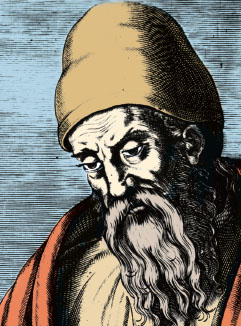
Building on the work of early Greek philosophers such as Thales of Miletus and Anaximander, Euclid showed that events in the world could be understood by the application of reason, rather than by appeal to the gods.
IT IS SAID THAT EUCLIDS GREAT BOOK THE ELEMENTS is the most widely translated, published and studied mathematical book in the western world. It is without doubt one of the greatest and most influential books of all time.
The Elements is basically about geometry, the mathematics of shape. It is such a thorough study that it remains the basic framework for geometry today, thousands of years after it was written. Mathematicians still refer to the geometry of flat surfaces lines, points, shapes, and solids as Euclidean geometry. In the Elements are summarized most of the basic rules of geometry, about triangles, squares, circles, parallel lines and so on that children learn at school today.
Euclids great book also marked the birth of a whole new way of thinking, in which the way to truth can be found by logic, deductive reasoning, evidence and proof and not simply by leaps of intuition and faith. Now mankind no longer needed to regard the workings of the world as controlled by the whim of the gods, but as following natural rules that could gradually be discovered by using Euclids methods.
However, this achievement was not Euclids alone. He built on centuries of intellectual effort by Greek thinkers, dating back to the almost legendary Thales of Miletus in the seventh century BC. Yet Euclids work encapsulated this approach to thinking in such a thorough and foolproof way that its lasting influence was guaranteed. Benedict de Spinoza, Immanuel Kant and Abraham Lincoln are among the countless people through history to have been inspired by his way of thinking.
Very little is known about Euclid himself. It seems likely that he lived around 300BC in Alexandria, the great Egyptian city then newly founded by Alexander the Great on the shores of the Mediterranean. The first Greek ruler of Egypt, Ptolemy Soter (c. 367283BC), created the Museum and Library in Alexandria, which became the most remarkable intellectual and educational institution in the ancient world, and Euclid was probably the leading mathematics teacher there. He may have been a student there under Plato, and Archimedes arrived there not long after Euclid died.
Font size:
Interval:
Bookmark:
Similar books «The Great Scientists: From Euclid to Stephen Hawking»
Look at similar books to The Great Scientists: From Euclid to Stephen Hawking. We have selected literature similar in name and meaning in the hope of providing readers with more options to find new, interesting, not yet read works.
Discussion, reviews of the book The Great Scientists: From Euclid to Stephen Hawking and just readers' own opinions. Leave your comments, write what you think about the work, its meaning or the main characters. Specify what exactly you liked and what you didn't like, and why you think so.

